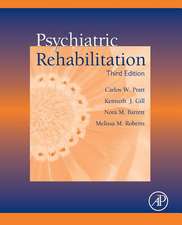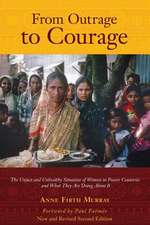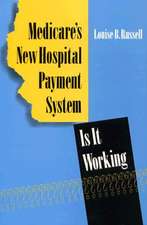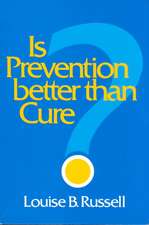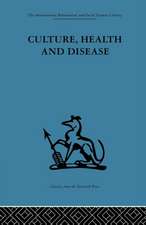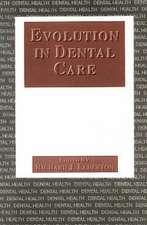Setting up Community Health and Development Programmes in Low and Middle Income Settings
Editat de Ted Lankester, Nathan J. Grillsen Limba Engleză Paperback – 28 mar 2019
Preț: 284.58 lei
Preț vechi: 331.35 lei
-14% Nou
Puncte Express: 427
Preț estimativ în valută:
54.45€ • 57.01$ • 45.06£
54.45€ • 57.01$ • 45.06£
Carte disponibilă
Livrare economică 05-11 martie
Preluare comenzi: 021 569.72.76
Specificații
ISBN-13: 9780198806653
ISBN-10: 0198806655
Pagini: 544
Dimensiuni: 191 x 248 x 25 mm
Greutate: 1.13 kg
Ediția:4
Editura: OUP OXFORD
Colecția OUP Oxford
Locul publicării:Oxford, United Kingdom
ISBN-10: 0198806655
Pagini: 544
Dimensiuni: 191 x 248 x 25 mm
Greutate: 1.13 kg
Ediția:4
Editura: OUP OXFORD
Colecția OUP Oxford
Locul publicării:Oxford, United Kingdom
Recenzii
This book provides an essential and comprehensive guide for anyone involved in setting up or managing community-based health care in a resource-poor setting, but its appeal is much wider that that.
... an engaging read and a worthwhile resource. Whether you are considering an overseas work placement, are involved in global health policy, planning, or research, or simply want to widen your horizons on the delivery of community-focused health care for vulnerable populations, each chapter provides sound food for thought.
A highly practical and applied approach with plenty of frameworks, illustrations and examples which both help communicate key messages and can be used in teaching and training for a wide variety of audiences. In summary, this is an excellent resource for all interested in global health.
... an engaging read and a worthwhile resource. Whether you are considering an overseas work placement, are involved in global health policy, planning, or research, or simply want to widen your horizons on the delivery of community-focused health care for vulnerable populations, each chapter provides sound food for thought.
A highly practical and applied approach with plenty of frameworks, illustrations and examples which both help communicate key messages and can be used in teaching and training for a wide variety of audiences. In summary, this is an excellent resource for all interested in global health.
Notă biografică
Dr Ted Lankester is Founder and Co-Leader of the global health network Arukah Network (previously known as Community Health Global Network), and President and senior clinician with the international humanitarian support organisation Thrive Worldwide. He has written several books on travel health, as well as chapters on the health of expatriates and humanitarian workers. He has also pioneered new models of health care in the North Indian Himalayas (co-funded by DfiD (ODA) where he was involved in setting up a number of community health programmes in remote areas.Associate Professor Grills is a Public Health Physician with the Nossal Institute for Global health, University of Melbourne. Dr Grills works on non-communicable diseases, community health and disability largely in the Indian context. He researchers disability measurement and tobacco control policy with the Public Health Foundation of India and the CHGN Uttarakhand Cluster. He has worked in international health in Africa, Fiji, East Timor, PNG, Bangladesh and Nepal.

